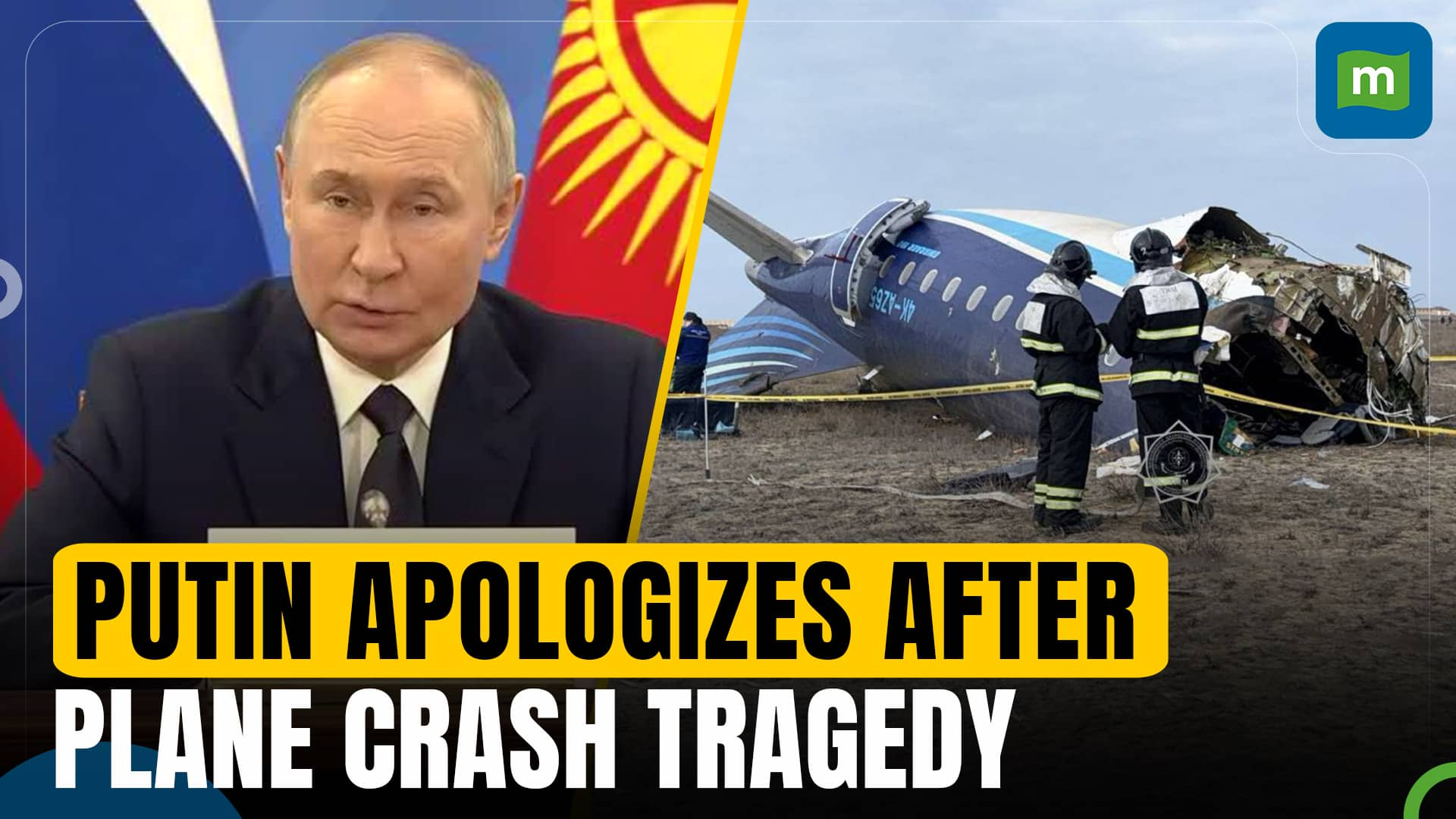 |
|
The tragic crash of an Azerbaijan Airlines plane in Kazakhstan, resulting in the loss of 38 lives, has prompted a rare public apology from Russian President Vladimir Putin to his Azerbaijani counterpart. The incident, shrouded in uncertainty and raising serious questions about accountability, has cast a long shadow over already strained international relations. The preliminary reports suggesting the plane may have been mistakenly shot down by Russian air defenses during a barrage of Ukrainian drone attacks in southern Russia represent a deeply troubling development, highlighting the potential for devastating unintended consequences in the ongoing conflict. The loss of 38 innocent lives, including a 13-year-old boy traveling alone to visit his mother, underscores the profound human cost of this geopolitical turmoil. The sheer scale of this tragedy demands a thorough and transparent investigation, leaving little room for ambiguity or obfuscation.
The Kremlin's announcement of ongoing investigations involving both civilian and military specialists is a necessary first step towards establishing the truth. However, the credibility of these investigations will hinge on their transparency and impartiality. The international community, particularly Azerbaijan, has a right to expect a full accounting of the events leading up to the crash, including a clear determination of responsibility. Any attempt to downplay or obstruct the investigation will only fuel distrust and exacerbate tensions between Russia and its neighbors. President Zelenskyy's demand for clear explanations reflects the global concern surrounding this incident, emphasizing the need for accountability and the prevention of future tragedies.
Beyond the immediate human cost, this incident raises broader concerns about the safety of civilian air travel in conflict zones and the potential for accidental escalation. The proximity of the crash site to the ongoing conflict in Ukraine underscores the pervasive threat posed by military actions to civilian populations. The use of air defenses, even in the context of repelling attacks, demands a meticulous assessment of risk and a commitment to minimizing collateral damage. The absence of a robust international mechanism for oversight and accountability in such situations represents a significant vulnerability, potentially leading to more tragic incidents in the future. This case serves as a stark reminder of the devastating consequences when the lines between military and civilian targets become blurred.
The apology from President Putin, while a significant gesture, is insufficient in itself to address the gravity of the situation. A sincere expression of regret must be accompanied by tangible actions, including a commitment to a transparent and impartial investigation, the full cooperation with international inquiries, and potentially, appropriate reparations for the victims' families. The incident underscores the urgency of finding solutions to prevent similar tragedies from occurring again. The international community must collaborate to strengthen safety protocols in conflict zones, enhance mechanisms for preventing accidental attacks on civilian aircraft, and ensure accountability for those responsible for endangering civilian lives.
Looking forward, this incident compels a reassessment of the international legal framework governing airspace safety in conflict zones. The existing legal framework may be inadequate to address the complexities of modern warfare and the increasing use of advanced weaponry. Strengthening international cooperation and developing more robust mechanisms for conflict resolution are crucial steps in mitigating the risk of such incidents. The need for greater transparency and improved communication channels between warring parties is paramount to prevent accidental strikes against civilian targets. The tragedy in Kazakhstan serves as a cautionary tale, a stark reminder of the fragility of peace and the devastating consequences of conflict, urging international cooperation towards conflict resolution and a renewed commitment to the protection of civilian lives.
Source: Putin Apologizes to Azerbaijan Over Deadly Plane Crash | N18G
